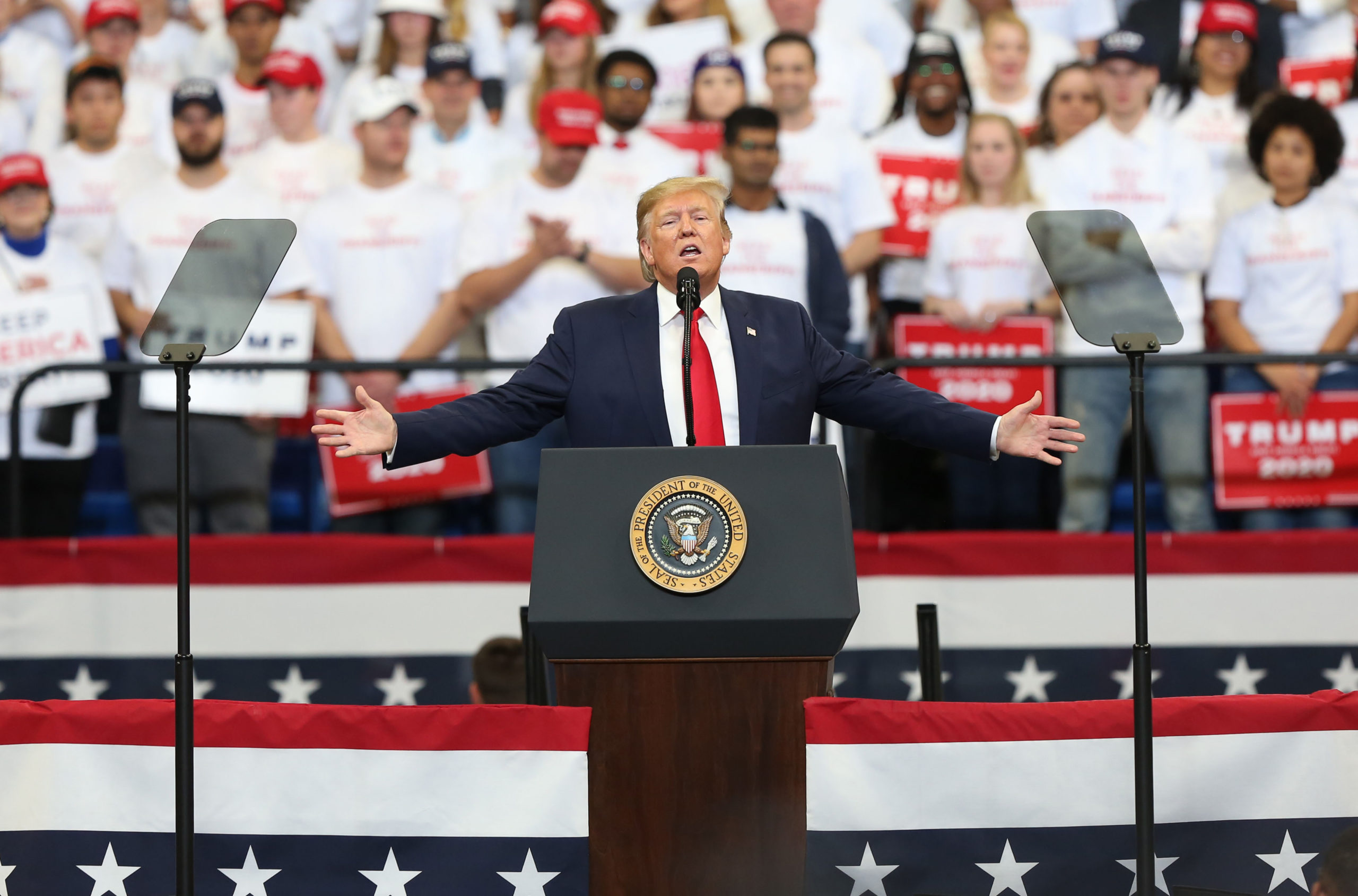


In the papers this morning, you will see that Donald Trump, the 45th president, is facing yet another indictment by a federal grand jury for what the Wall Street Journal inelegantly calls “election schemes.” Special Counsel Jack Smith is bringing four new felony charges against Trump pertaining to the disputed outcome of the 2020 election and the January 6 riot at the Capitol.
This indictment joins two other criminal indictments: a federal case pertaining to the alleged mishandling of classified material and a New York state case about a non-disclosure agreement with a pornographic actress. For his part, Trump has dismissed the indictment as an effort to hobble his candidacy before the 2024 election—which is hard to argue with, but also beside the point of the cases themselves.
Here is the truth about Trump: He won. He won in 2016, and he won in 2020. Few presidents in modern history have won as unambiguously as Trump won.
In the 2015 speech announcing his candidacy, Trump told the world what he was all about, politically. He argued that globalist trade policy had weakened the American economy and hurt the American worker, singling out China and Mexico in particular as unfair dealers. He condemned the idealistic adventurism of the Iraq war; he said American security obligations to countries like Saudi Arabia were raw deals for the U.S., and noted that China was using its trade surplus with the U.S. to fund military expansion in the Pacific. He denounced plans to cut entitlement programs like Social Security. He declared that he would close the border with Mexico.
In 2023, less than a decade later, Americans across the political spectrum have stepped back from free trade orthodoxy. The United States has negotiated a replacement for NAFTA, the USMCA, to stop Mexican cheating on labor and environmental standards and Canadian cheating on subsidies; as of now, the U.S. is litigating a trade dispute to keep Mexico honest on energy, steel, and aluminum. We are in the midst of negotiating a reform of the WTO dispute settlement system to be more amenable to American protection mechanisms. Meanwhile, China has fallen from the top American trade partner to a distant third place.
Within the U.S., a fad for industrial policy has gripped both parties. Enormous bills targeting infrastructure and key industries have passed on largely bipartisan bases. The American qua worker rather than qua consumer has become the focal point of mainstream American economic policy. The current administration slow-walked its response to inflation for fear of causing a spike in the unemployment rate. The Biden NLRB is more union-friendly than even Trump’s.
Meanwhile, the American foreign policy establishment has oriented itself toward a long-term rivalry with China. The current secretary of State kicked off his Chinese relationship with a polite shouting match with Chinese diplomats at a summit in Alaska. (Of course, it seems that the blob is determined to bring its characteristic panache to the Chinese question.) The Russia–Ukraine conflict has given our freeloading European allies a kick in the pants, encouraging them at least to start getting serious about bearing their own defensive burdens. Following through on Trump’s attempted pullout from Afghanistan—functionally vetoed by the defense establishment—was one of his successor’s top foreign policy priorities, and one that he followed through on despite resistance from the generals.
While the current administration has dithered in its immigration policy, the American public has grown more resolved. Biden’s handling of the border and immigration is one of his few consistently unpopular policies—a May CBS poll found that 64 percent of respondents disapproved. More than half of Americans think troops ought to be deployed to the border to stop illegal drugs from entering the country. Roughly 70 percent of Americans think that immigration, including legal immigration, should be held at current levels or decreased.
On social issues, Trump’s positions have ended up being uncontroversial and mainstream—pro–gay marriage, a “moderate” on the murder of the unborn, in favor of moderate justice reform. (As has been the usual case for the American people, social issues always rode in the back seat to economics for Trump.) A wag might suggest that concerns about election security have also become universal, although in rather different ways.
In under a decade, almost all Trump’s policies have achieved the status of conventional wisdom. This became clear almost as soon as the man had left 1600 Pennsylvania Ave. Few modern presidents have so completely reshaped the American political landscape—FDR, LBJ, perhaps Reagan. It is worth pointing out again that nearly the whole Republican nomination field is populated by candidates who are claiming the Trump mantle, arguing they are improved models rather than departures from the America First mold.
So, as the criminal cases against Trump unfold, as the outcome of the 2020 election is endlessly litigated and relitigated, remember that the 45th president made the political world we’re living in. Right, left, and center, his policies have become the air we breathe. In a word (or two), Trump won. You might almost wonder whether the man is sick of it.
